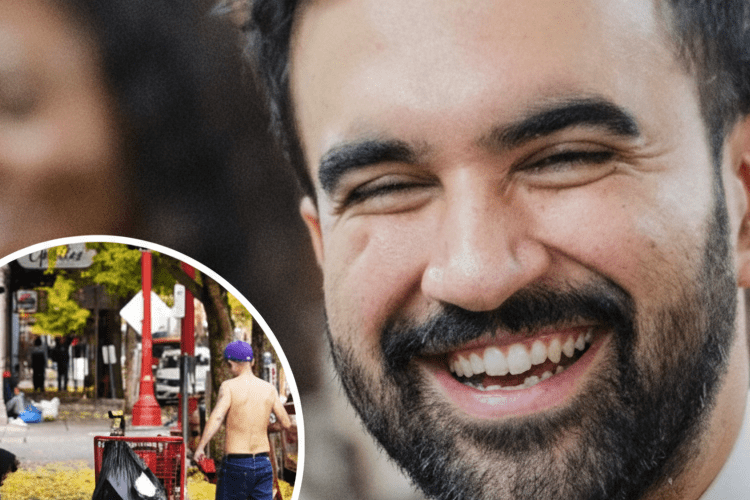From Handouts to Heartbreak: Zohran Mamdani’s Free Rent and Trans Surgery Giveaway Dreams Face Brutal Portland Reality Check – As Oregon Voters Revolt Over Crime and Collapse, Will New York’s New Mayor Learn Before It’s Too Late?
In the shadow of Portland’s rain-slicked streets, where once-vibrant neighborhoods now huddle under the weight of empty storefronts and flickering neon signs, a quiet desperation simmers—a far cry from the bustling tech haven that drew dreamers and doers to Oregon’s crown jewel just a decade ago. Picture the single mom in a threadbare apartment, her kids’ laughter drowned out by the distant wail of sirens, scraping together rent in a city where progressive promises of equity have morphed into an everyday grind of insecurity. Or the small-business owner, his coffee shop’s windows boarded up after another wave of smash-and-grabs, wondering if the “defund the police” mantra that swept his council chamber was ever meant to leave him defenseless. These aren’t abstract woes; they’re the human heartbeat of a socialist experiment gone awry, a cautionary tale unfolding on the Left Coast that now casts a long, urgent shadow over the bright lights of New York City. As Zohran Mamdani, the 33-year-old democratic socialist who stunned the political world by clinching the Big Apple’s mayoralty in a razor-thin upset on November 5, 2025, prepares to take the oath, his victory speech vows—frozen rents, free buses, subsidized gender-affirming surgeries even for minors—ring with the echo of Portland’s playbook. But what if that echo is a warning bell, tolling not triumph, but the toll of good intentions paved with economic potholes? In a nation hungry for hope amid division, Mamdani’s ascent stirs a profound question: Can New York embrace the progressive dream without awakening to Portland’s nightmare?
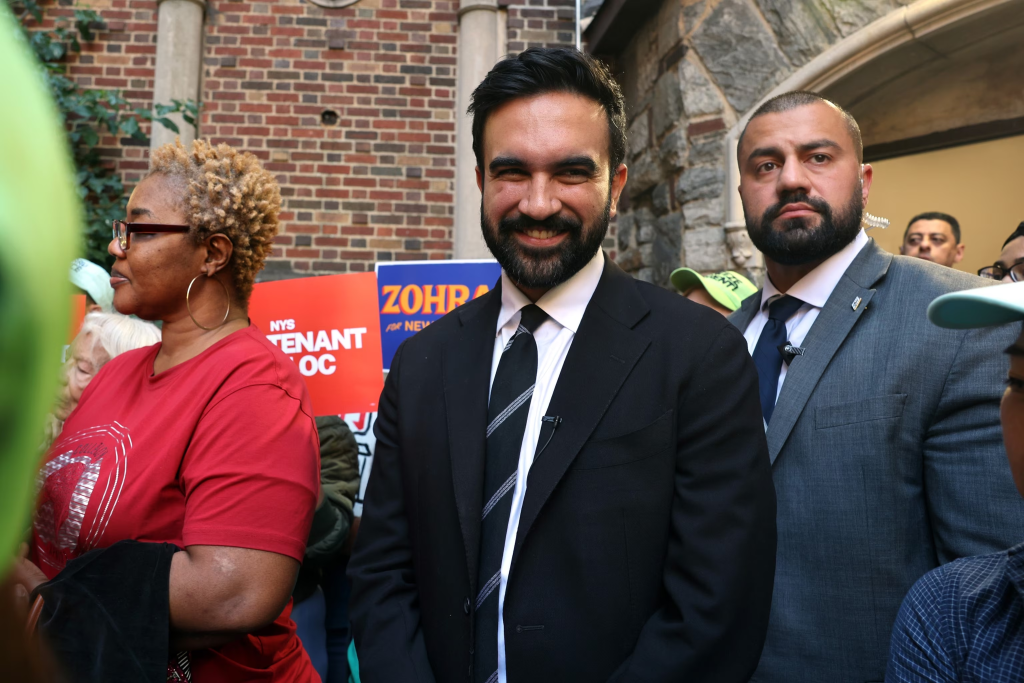
Mamdani’s campaign was a masterclass in aspirational fire, a whirlwind of rallies in Astoria coffee shops and Harlem block parties where his Ugandan-American roots and Queens grit resonated like a folk anthem for the forgotten. Elected to the state assembly in 2020 at 29, the Columbia grad with the easy smile and eloquent barbs against “corporate greed” rode a wave of youth turnout and billionaire backlash to edge out establishment favorite Andrew Cuomo by 2.3 points, flipping the race in the final Fulton County tallies. His platform, splashed across yard signs from Brooklyn to the Bronx, painted a utopia of radical relief: capping rents at 2019 levels to shield tenants from the city’s 40 percent spike since the pandemic, rolling out fare-free subways and buses to slash the $2.90 ride burden for 4 million daily commuters, and expanding Medicaid to cover gender-affirming care—including surgeries for those under 18—framed as a lifeline for trans youth facing a 41 percent suicide attempt rate. To fund it all? A “millionaire’s tax” hiking levies on the top 1 percent, those high-earners already shouldering 45 percent of the city’s income tax haul, promising to pour billions into universal childcare and green jobs without touching the middle class. “New York isn’t for sale,” Mamdani thundered on election night, his voice cracking with the emotion of a son of immigrants who’d hustled DoorDash gigs to pay tuition. For families like the Garcias in Jackson Heights—Maria, a nurse pulling doubles, her husband Luis a delivery driver watching their two girls share a bedroom—it was a siren’s song of solidarity, a pledge that the city’s soul could be reclaimed from speculators and suits.
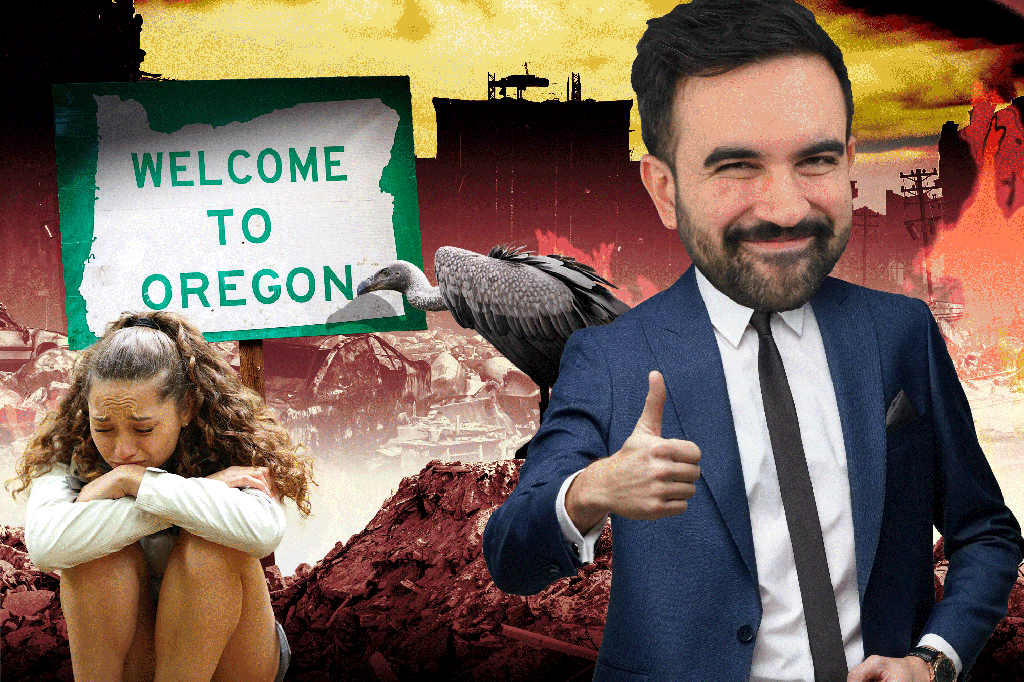
Yet, as confetti settled on City Hall steps, a sobering specter loomed from 3,000 miles west: Portland, Oregon, that progressive paradise turned cautionary poster child, where similar visions of equity have curdled into a cocktail of crime, exodus, and economic ennui. Once hailed as a model for millennial migration with its craft breweries and bike lanes, Portland’s embrace of socialist-leaning reforms since 2016—capping police budgets at 2020 levels, decriminalizing small drug possession via Measure 110, and funneling millions into homeless “villages” over traditional shelters—has left its 650,000 residents grappling with a reality far removed from the brochures. The numbers tell a tale of quiet catastrophe: homicide rates up 83 percent from 2019 to 2023, property crimes surging 20 percent amid a 40 percent drop in arrests, and downtown office vacancy hitting 28 percent as firms like Nike and Columbia Sportswear trim local footprints. A recent Public Opinion Strategies poll, commissioned by the pro-business “Save Our Cities” coalition and surveying 800 Oregon voters, lays bare the backlash: 67 percent deem the state’s economy “pretty seriously off on the wrong track,” blaming sky-high taxes (Oregon’s combined state-local burden ranks 10th nationally at 11.2 percent of income), stifling regulations, and unchecked homelessness that’s swollen encampments from 1,500 tents in 2020 to over 6,000 today. Independents, the swing bloc comprising 38 percent of the electorate, are even more disillusioned—73 percent see red flags waving. “We voted for change, but this feels like chaos,” confided one Beaverton teacher in the survey’s qualitative notes, her words a whisper from the front lines of frayed dreams.
The emotional core of Portland’s plight pulses through stories like that of Elena Ramirez, a 42-year-old barista whose Pearl District café shuttered last spring after repeated break-ins. “I believed in the vision—affordable housing, mental health first,” she shared in a tearful KATU interview, clutching a faded photo of her staff’s last holiday party. “But when the cops couldn’t respond because budgets were slashed, and addicts camped outside my door, the dream died.” Ramirez’s tale mirrors a broader hemorrhage: 15,000 residents fled Multnomah County between 2020 and 2024, per U.S. Census data, many to Idaho or Texas for lower costs and safer streets. The city’s once-thriving tech scene, home to Intel’s sprawling campus, now contends with layoffs—2,000 jobs axed in 2024 alone—as executives cite “unpredictable governance” in relocation memos. And the US Bancorp Tower, that 42-story sentinel of Portland’s skyline, sold for a fire-sale $45 million in October 2025, down from $400 million a decade prior, its 60 percent vacancy haunted by “vagrants sleeping in hallways,” as a former tenant’s lawsuit alleged, with reports of stairwell fires, fentanyl haze, and human waste staining common areas. “It’s not compassion if it crushes the compassionate,” laments local developer Tom Imeson, whose stalled condo project cites the “permissive environment” as a deal-breaker.
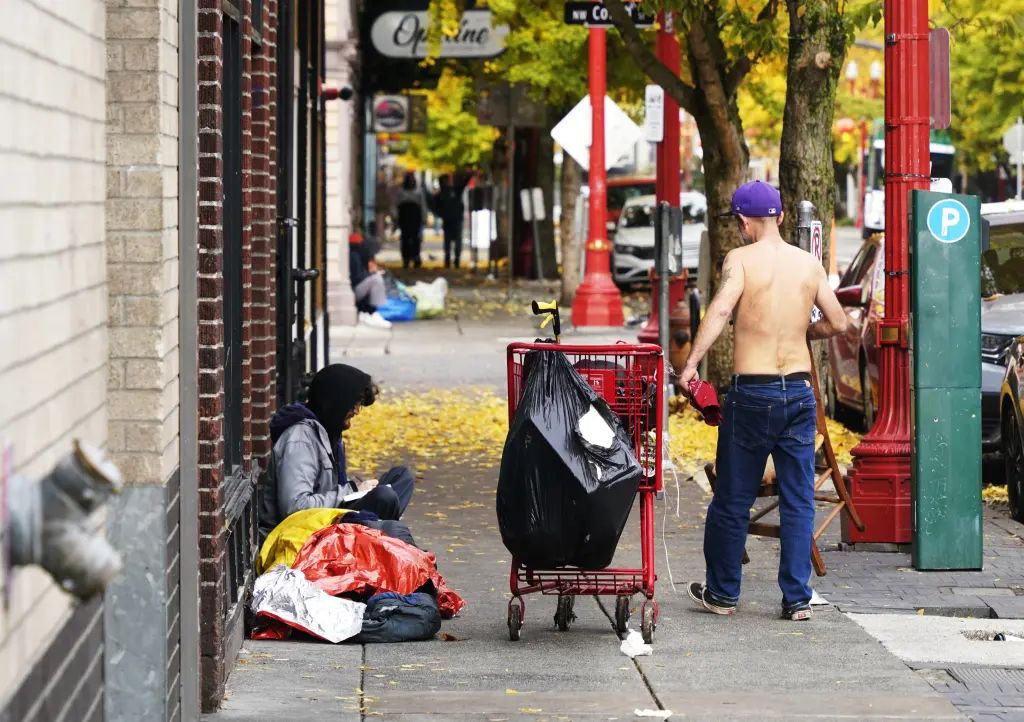
Mamdani’s blueprint, unveiled in a glossy 50-page manifesto last summer, echoes Portland’s playbook with uncanny precision, raising eyebrows among New York’s business titans and moderate Dems who fear a Rose City redux in the five boroughs. His rent freeze, modeled on Oregon’s 2019 caps that limited hikes to 7 percent but spurred a 15 percent dip in new multifamily starts, could choke the 200,000 units under construction citywide, per Real Estate Board of New York estimates. Free transit? Portland’s 2022 experiment slashed fares to zero, only to see ridership rebound just 5 percent while assaults on MAX light rail jumped 30 percent, forcing a $20 million security retrofit. And the push for subsidized trans surgeries—extending coverage to those 16 and up, at an estimated $500 million annual tab—mirrors Oregon’s expanded Medicaid for gender care, which, while lauded by advocates for reducing youth dysphoria waitlists by 40 percent, strained budgets amid a $1.2 billion Medicaid shortfall last year. To balance the books, Mamdani eyes a 2 percent surcharge on incomes over $1 million, potentially netting $3 billion but risking the exodus of 1,500 high-earners who bolted post-2021’s “millionaire tax,” according to a Manhattan Institute study. “Zohran’s heart is in the right place,” concedes City Comptroller Brad Lander, a progressive ally turned fiscal hawk. “But Portland shows us: Good intentions without guardrails lead to good people leaving.”
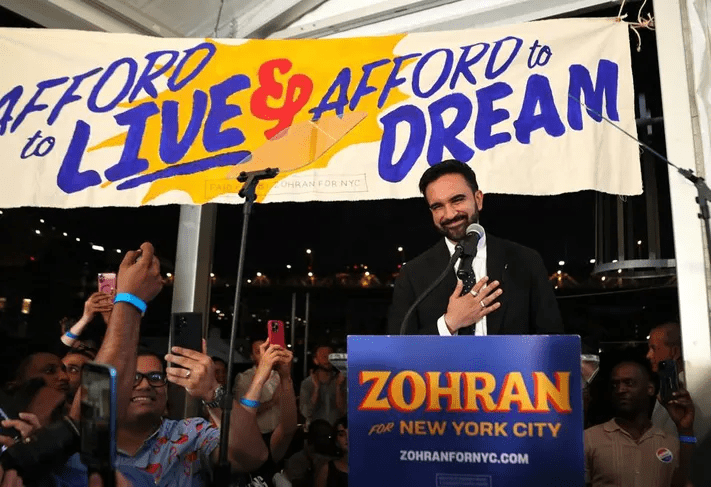
The parallels sting because Portland’s fall wasn’t inevitable; it was a cascade of choices, each lauded in the moment but lamented in the ledger. Measure 110, the nation’s first decriminalization of hard drugs, funneled $330 million into treatment but saw overdose deaths climb 50 percent to 1,000 annually, prompting a 2024 partial repeal amid voter fury. Police defunding, trimming the bureau by $15 million in 2020, correlated with a 25 percent spike in car thefts and a 40 percent officer exodus, leaving vacancies at 18 percent. Homeless initiatives, like the $100 million “Right to Rest” ordinance allowing encampments in parks, ballooned the crisis—4,000 unsheltered in 2023, up from 1,500—while costing taxpayers $250 per tent per night in cleanup alone. A 2024 ballot measure to restore funding passed with 58 percent, a repudiation that Mamdani’s critics hope echoes in Gotham. “New Yorkers aren’t Portlandites,” warns former Mayor Bill de Blasio, whose own progressive tilt saw subway crime double before a pandemic pivot. “We love big ideas, but we live the consequences.” For families like the Patels in Flushing—Ravi, a taxi driver eyeing early retirement, his wife Priya a home health aide—the stakes feel visceral: “We’ve fought for every square foot here. Handouts sound sweet, but if they hollow out the city like they did up north, what’s left for our son?”
As Mamdani assembles his transition team—tapping AOC for housing advice, DSA vets for equity roles—the city buzzes with a mix of excitement and unease, a emotional tightrope between aspiration and apprehension. Supporters rally in Union Square, chanting “Tax the rich, house the poor,” their signs a mosaic of immigrant pride and intersectional hope. Detractors, from Wall Street whisper networks to Queens bodega owners, murmur of boycotts and board relocations, citing a Siena College poll showing 55 percent of New Yorkers prioritizing “public safety” over “social services” in budget fights. Mamdani, ever the optimist, dismisses the doomsayers in a recent Post op-ed: “Portland’s lessons are about implementation, not ideology—we’ll build with community, not against it.” His first moves—a task force on rent stabilization, pilots for fare-free ferries—aim to thread the needle, blending bold strokes with buy-in from moderates like incoming Council Speaker Adrienne Adams.
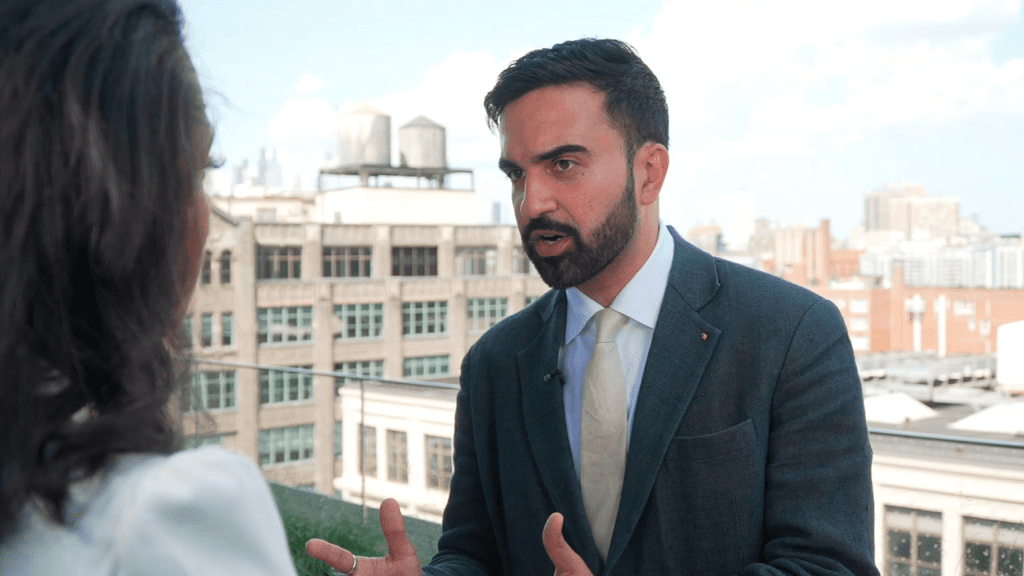
Yet, as November’s chill nips at the Hudson, Portland’s shadow lingers like a fog over the skyline, a poignant plea to temper vision with vigilance. For every Ramirez shuttering her café, there’s a Mamdani voter like young Jamal in Bed-Stuy, dreaming of a city where his sister’s dysphoria doesn’t demand dollars they don’t have. The truth? Progressive governance thrives on balance—equity without erosion, compassion without collapse. As Zohran Mamdani steps into Gracie Mansion, the question isn’t if New York can afford his heart; it’s whether his head can steer clear of Portland’s potholes. In a metropolis of 8.8 million souls, each chasing their slice of the dream, the answer will unfold not in manifestos, but in the quiet metrics of lives lifted or lost—a story still writing itself, one policy at a time.
